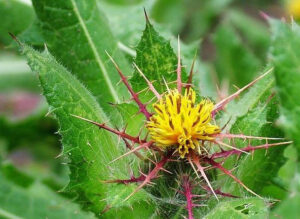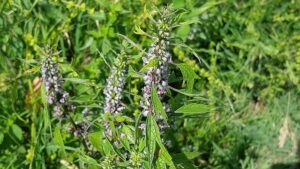Dear Annie, I have been experiencing vertigo for a little over a year. It wasn’t to bad at first but has been getting worse. The dizziness comes in episodes, sometimes with nausea. It is miserable. My ears ring all the time, but a few hours before a “dizzy spell” my left ear rings louder. Can you suggest anything that might help?
Thank you for reaching out. vertigo can be very disorienting and as you said miserable. It’s important to understand that Vertigo is a symptom of something else going on. The underlying problem can be one or a combination of several things. Let’s start by understanding Vertigo.
About Vertigo
Vertigo is a sensation of spinning dizziness, like you, or your environment is moving or spiraling. The feeling may be barely noticeable or so severe that you find it difficult to keep your balance. I know one woman who, at times, become incapacitated. When her symptoms are most sever she is not able to lye down comfortably, and eating and drinking are challenging. Each situation, and often, each “episode” experienced differently.
Vertigo as a symptom
Vertigo is usually a symptom of one or more underlying medical conditions that affect the inner ear or brain. Some people only experience the condition once. For others vertigo will reoccur until the underlying problem is resolved.
Compromised blood supply – 25% of all cases of vertigo are reported to have compromised blood supply in the posterior or rear bottom section of the brain (called the vertebrobasilar vasculature). This means the blood flow to the areas of the brain such as the brainstem, thalamus, hippocampus, cerebellum, occipital and medial temporal lobes is insufficient. This statistic may not be the causal factor but a result of another condition. Either way, it give us a place to start when thinking about holistic strategies.
Types or Classifications of Vertigo
There are two main classifications for vertigo, peripheral vertigo and central vertigo, depending on the cause.
Peripheral vertigo
The most common type of vertigo, peripheral vertigo is caused by a problem with the mechanisms of the inner ear. Some common causes of this type of vertigo include:
- Benign paroxysmal positional vertigo (BPPV) – One of the most common causes of vertigo, BPPV is caused by small fragments of debris (calcium carbonate crystals), which break off from the lining of the channels in the inner ear. These fragments get down into one of the ear’s fluid-filled canals. When we move around, the crystals shift in the inner ear canal sending mixed messages to the brain. Episodic attacks are usually short, intense and recurrent. Bouts may last a few seconds or a few minutes and are often accompanied by nausea. Sometimes there can be an experience of your eyes moving uncontrollably (nystagmus).
- Head injury – Vertigo is a fairly common symptom after a brain injury. Much will depend on where you hit your head and the severity of the injury. If you experience vertigo after an injury to the head, please be sure to share this with your Doctor or Health Practitioner.
- Labyrinthitis – Is an inner ear infection that causes the structure deep inside your ear (the labyrinth) to become inflamed. The information sent from the inflamed ear is different from the unaffected ear causing mixed signals that result in dizziness and vertigo. This type of vertigo is usually accompanied by a high temperature, ear pain, nausea, vomiting, hearing loss and ringing in the ears (or the affected ear).
- Vestibular neuronitis – is an inflammation of the nerve connecting the inner ear to the brain. It’s usually caused by a viral infection and comes on suddenly. Additional symptoms may include unsteadiness, nausea, and vomiting. It can last for a few hours or up to six weeks.
- Ménière’s disease – A rare condition of the inner ear that causes vertigo, hearing loss, tinnitus (ringing in the ears) and a feeling of fullness or pressure in the ear. The cause of Ménière’s is unknown. It can produce sudden episodes of vertigo that can last for several hours or days.
- Medication – Certain types of medication can cause dizziness and vertigo. If you’re on medication and experiencing vertigo, read the side effects portion of your information sheets for each med. Don’t stop taking your medication. Talk to your Doctor right away.
Central vertigo
Central vertigo Is caused by problems in part of your brain or with the Central Nervous System. Causes of central vertigo include:
- Migraines – a severe headache that’s usually felt as a throbbing pain at the front or on one side of your head. A migraine is also a symptom that can be caused by many things. Some causes for migraine headaches include food allergies, biomechanical difficulties in the brain or spinal cord, hormonal imbalances and digestive issues.
- Cerebrovascular Disease – Impaired Circulation to the brain.
- Multiple sclerosis – A condition that affects the Central Nervous System (the brain and spinal cord).
- A Brain Tumor – or abnormal growth, that for our purposes, affects the acoustic nerve that controls hearing or balance.
- Stroke – When the blood supply to part of the brain is cut off.
- Medication
Common Symptoms of Vertigo
Symptoms may occur alone or in combination. Some symptoms include:
- Loss of balance
- Dizziness
- Lightheadedness
- A sense of motion sickness
- Nausea and vomiting
- Ringing in one or both ears (called tinnitus)
- A feeling of fullness in the ear
- Headaches
- Uncontrollable eye movements, usually from side to side (called nystagmus)
Natural Solutions for Vertigo
Several recent scientific studies show holistic therapies to be more, or at least equally effective, in the treatment and management of symptoms for vertigo. Especially when compared to commonly prescribed medications for the condition.
Below is a discussion of some of the most effective natural strategies:
Epley Maneuver
Manual manipulation of the inner ear canals is one of the of the most effective treatments for vertigo. Especially non-infectious peripheral vertigo like BPPV and Ménière’s disease. Studies have shown that up to 52% of vertigo sufferers gain relief from the Epley maneuver. For most people relief can be either immediate or within a few days.
There are a few different versions of the techniques all by different names. It’s best to have a Dr, physical therapist or other trained person perform the Epley’s Maneuver. The maneuver works best when you’re completely relaxed. Most sufferers find it easier to relax when guided by a skilled professional. There are some techniques you can do at home. The links below are video demonstrations of a few different techniques.
Herbal Remedies and Vertigo
Ginkgo leaf standardized extract is one of our most valuable (and popular) vascular and cerebral tonics. It is used to increase blood flow to the brain (along with other parts of the body). The herb helps regulate blood vessel tone and elasticity and stabilize stabilize capillary permeability.

Ginkgo is a good choice in most of the causes of vertigo. A 2014 study by the International Journal of Otolaryngology, found that 120 milligrams of Gingko standardized extract taken 2 times per day was as effective as prescription medication usually prescribed for dizziness and vertigo.
Gingko is contra-indicated when taking any kind of blood thinning medication.
Ginger (Zingiber officinale)
Ginger is well-known as an effective treatment for nausea and motion sickness. It works because of its ability to stabilize the connections of the inner ear to the rest of the brain (called the vestibular system).

The vestibular system is the part of the brain that gives information about motion, head position, and spatial orientation. It is involved with motor functions that allow us to stay balanced, to stabilize ourselves during movement. An invaluable herb when dizziness, along with nausea are a problem,
Ginger can be taken/used as a tea, capsule, extract or essential oil. Small, frequent doses are best.
This one’s my favorite of the three for the treatment of vertigo and tinnitus (ringing in the ears). It is mentioned as a specific for this condition by the famous medieval herbalists Nicholas Culpeper and John Gerard of the 1600’s. Culpeper, in his 1653 herbal “Culpeper’s Complete Herbal” says, “It helps swimming and giddiness in the head, or the disease called vertigo.” Gerard goes on to say “it strengtheneth memorie and is a singular remedie against deafness.”

Modern medical science agrees, verifying the presence of neuroprotective constituents in the herb.
I love this herb and recommend it often for symptoms like ringing in the ears, dizziness and difficulties with peripheral circulation. Blessed Thistle is certainly one to try for vertigo or add to the vertigo formula.
Motherwort (Leonurus cardiac)
A common and versatile her, Motherwort is often indicated for vertigo when accompanied by a heart condition, vascular impairment, high or low blood pressure, migraine, hormonal imbalance, menopause or anxiety.

Recipe Ideas to Help Relieve Vertigo
One Possible Vertigo Relief Formula
- 2 parts Ginkgo Biloba
- 1 part Blessed Thistle
- 1/2 part Ginger
- Add 1/2 part Motherwort in anxiety or heart palpitations are present.
Directions – Take 30-60 drops as needed when the ears start ringing louder or 2-3 times per day to help relieve chronic and ongoing episodes of vertigo.
Additional Suggestions
Stay Hydrated – some people experience increased vertigo when they don’t drink enough water. Keep track of how much water you drink in a day. If it’s under 6 or 8 cups per day, increase your intake.
Acupuncture and acupressure are both nice treatments and are often recommended for vertigo. Both are great at balancing the body and harmonizing energy flows.
Essential oils have been used by many to successfully manage symptoms of vertigo. Some of the essential oils often suggested are: Peppermint, Lemon Balm, Ginger, Lavender and Lemon.
Product Suggestions
Below are affiliate marketer Links. I work with Amazon and some other companies. If there is a link please assume, I am an affiliate. That means, if you purchase a product through one of the links, I make a commission at no additional cost to you. Rest assured I only suggest products I can support and feel confident about. Thank you for your support.
Ginkgo Biloba
Elite Life Nutrition makes a very nice Ginkgo Biloba supplement. It’s made with whole fresh herbs and has no extra added ingredients. When looking for a Ginkgo supplement 120 mg is all that’s needed. More doesn’t mean better. It doesn’t have to be complex to do the work we want.
Ginger Tea
Ginger Tea – Probably the best Ginger to use for tea is fresh. use 1 tsp of freshly grated ginger root to a cup of boiling water and let steep for 5 to 10 minutes. That said many folks like the convenience of tea bags. In that case my favorite brands for Ginger tea are Traditional Medicinals, Pukka Three Ginger, and Yogi Tea
Homeopathic Vertigo Relief
Healthful Naturals offers a nice homeopathic product, that is best used at the first sign of vertigo. I’ve not tried this product. I do think it would work nicely for those with episodic vertigo. Especially if you typically get some warning. If you try it, let me know how you like it.
Thank you for welcoming me into your inbox. I hope this gives you plenty of information to control or resolve your vertigo. It is my bliss to have the opportunity to share my experience and research and it is my true desire to be helpful.
I would love to hear from you. Please contact me about your thoughts, ideas and experiences you’d like to share. Let me know what you’ve tried, what works and what doesn’t.
Good health to you!
Warm Blessings,
Annie
References
https://www.nhsinform.scot/illnesses-and-conditions/ears-nose-and-throat/vertigo#causes-of-vertigo
https://www.medicalnewstoday.com/articles/320492.php
https://www.ncbi.nlm.nih.gov/pmc/articles/PMC4099171/#B15
http://www.complete-herbal.com/culpepper/cardusbenedictus.htm
https://plantscience.psu.edu/medieval-garden/blessed-thistle
https://www.ncbi.nlm.nih.gov/pubmed/26109755
Crawford, Amanda McQuade NA, MNINH, Botanical Research Update Lecture Notes, 2001 Southwest Conference on Botanical Medicine Conference Notes: Tempe AZ.
2015 lecture notes, Southwest Conference on Botanical Medicine, Tempe AZ.
Thomas Easley, Patricia Kyritsi Howell & Danny O’Rawe, American Herbalists Guild Symposium lecture notes, October 29, 2018 Unicoi State Park, Georgia, USA
https://www.ncbi.nlm.nih.gov/pmc/articles/PMC4099171/#B10
Disclaimer
These statements and products have not been evaluated by the FDA. They are not intended to diagnose, treat, cure, or prevent any disease or condition. If you have a health concern or condition, consult a physician. Always consult a medical doctor before modifying your diet, using any new product, drug, supplement, or doing any new exercises.
Herbs taken for health purposes should be treated with the same care as medicine. Herbal remedies are no substitute for a healthy diet and lifestyle. If you are serious about good health, you’ll want to combine diet, exercise, herbals, a good relationship with your doctor and a generally healthy lifestyle. No one of these will do it alone.
This information is designed to be used as part of a complete health plan. No products are intended to replace your doctor’s care, or to supersede any of his/her advice or prescriptions.


Fantastic Blog for Natural Healing. I have studied herbs and homeopathic remedies for more than 20 years. The best thing I can share is that you do not need to spend a lot of money to improve your physical and mental well being. The herbs are right in your back yard, and their are many easy life style changes to improve mood, anxiety, weight loss, blood pressure and more.
Gary Davis
https://www.betterherbnews.com/healthy-mind
Hi Gary, Thank you for joining the conversation. You are correct. The plants are in our own backyard. Lifestyle, diet and connection or community are keys to a happy and healthy life. When we look beyond the “problem”, “diagnosis” or “dis-ease” we find what is truly going on for each person. AND each person is different, each condition is unique. Excited to check out your site.
Many Blessings, Annie
Thank you for sharing this article! I feel much more confident in the essential oils I have now.
Thank you for Sharing. What essential oils do you prefer for this issue? Although I do use some essential oils, I admit that I prefer whole herbs most of the time. Whole herbs and herbal extracts are easier to dose in optimal amounts and much less expensive. I also find that whole herbs have a broader range of medicinal properties. That said I do like some essential oils. Which ones are your favorite?